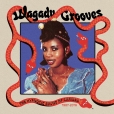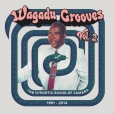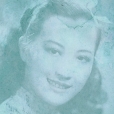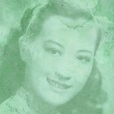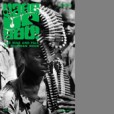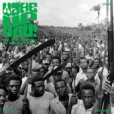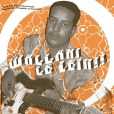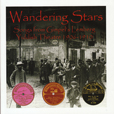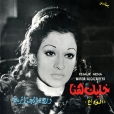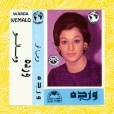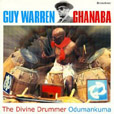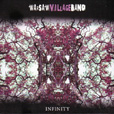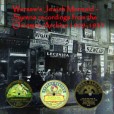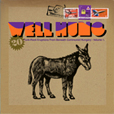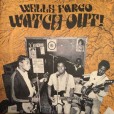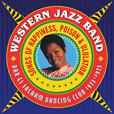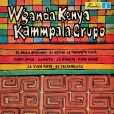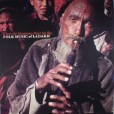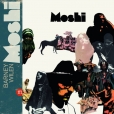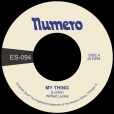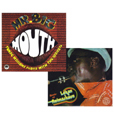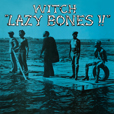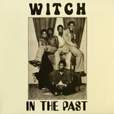Your basket is empty

A zinging survey of the dazzlingly diverse, thrilling, neglected releases of Gaye Mody Camara, a young Soninke raised in Mali’s Kayes region, who settled in France in 1977. He started out by selling wax, kola nuts, and other items in Paris; and in no time he was distributing cassette tapes, on his way to producing a multitude of recordings for his own label, Camara Production. A fascinating, precious insight into the modern diaspora of ancient Soninke culture, spanning out as Malian zouk, Mauritanian reggae, and a myriad of grooving, head-spinning directions. Prepared in full collaboration with Gaye Camara; with riso-printed notes.
‘Shidaiqu means ‘songs of the era’: a hybrid musical genre arising in the cosmopolitan city of Shanghai in the late 1920s, blending traditional Chinese elements with western pop, jazz, blues, and Hollywood-inspired film soundtracks. It represented a musical and cultural merging that would go on to shape a golden age of Chinese popular song and film in the interwar period.
‘Waiting For Your Return ranges from early beginnings — like the 1927 recording Drizzle, often considered the first shidaiqu 78, composed by Li Jinhui and performed by his daughter Li Minghui — through to more polished examples in succeeding decades, by such stars as Bai Hong, Wu Yingyin, Yao Lee, and most prolifically Zhou Xuan.
‘The recordings here reach up until the shidaiqu’s local demise in the early 1950s, when the Chinese Communist Party denounced it as ‘yellow music’, outlawing nightclubs and the manufacture of pop music, and destroying western-style instruments. At this point many of these singers decamped to Hong Kong, enjoying further success throughout the 1950s and into the 1960s.’
Treasurable 78s about sex, booze, marriage — the original Yidl Mit Seine Fidl, a wild Simchas Torah — from the first Yiddish theatre in Europe. Patrons like Kafka, Joseph Roth and Chagall were knocked sideways.
Warda Ftouki is one of the great Arab divas of the twentieth century.
Aka Warda Al-Jazairia, Warda the Algerian was forced to leave Algeria in 1956, when FLN guns were discovered in her dad’s nightclub. (Warda was a lifelong, unflinching supporter of independence.)
Aged twenty, now singing in Beirut cabarets, she became the protege of Mohammed Abdel Wahab. Returning to Algeria after independence in 1961, she took a ten year break from singing, because this was forbidden by her new husband. She left him in 1972, moving to Egypt, where she married Baligh Hamdi.
Here she is in 1973, singing a composition by Hamdi, backed by a full Egyptian orchestra, including electric guitar and organ, in front of a euphoric, adoring crowd.
Wonderful music — swirling and grooving with dazzling virtuosity; imperiously funky and giddily soulful.
The great Algerian diva of Arab song — a Dilla favourite, incidentally — accompanied by a full-sized orchestra, augmented by electric guitar and organ, in a characteristically grooving, classy composition by her old man Baligh Hamdi. This reissue features newly remastered audio, the original cassette artwork, and a two-page insert with a new introduction by Mario Choueiry from the Institut du Monde Arabe
Another fascinating instalment in the history of Jewish recorded music, this time drawn from the Syrena — ‘Mermaid’— record label of Warsaw, when the city in its gloriously diverse, cultural heyday was known as ‘the Paris of the East’, before the devastation of the 1940s: precious, thrilling 78s thronged with people arguing, soldiering, going bankrupt, praying, dancing to Klezmer, meeting the devil, failing to have sex, complaining about modern girls… and eating.
With an informative, richly illustrated, twenty-eight-page booklet.
Rare 45s by these standard-bearers of the funky, counter-cultural heavy rock-scene in mid-seventies Rhodesia. Watch Out was its anthem.
Saboso from mid-seventies Dar Es Salaam. Complex, fluid guitars and congas; pithy songs.
Precious witness to the dying musical traditions of Ladakh, high in the Western Himalayas, for centuries a hub of the Silk Road to India, Tibet, and Kashmir.
Inspired, free, luminous music-making. An outernational holy grail and a stiff tonic for all citizens of nowhere.
Already the great French jazz saxophonist had made monumental records alongside all-time legends like Monk, Blakey, Bud Powell and Miles — that’s Wilen on Lift To The Scaffold — before cutting loose at the end of the sixties on a two-year journey through Morocco, Algeria, Niger, Mali, Upper Volta (now Burkina Faso) and Senegal, with a team of film-makers, technicians and musicians.
Moshi means trance utterance — the moshi is a demon invoked by the Fulani Borogi of Niger, to chase away angst and depression — and this is a shamanistic bricolage of smoky musical spells and scraps of intimate, outdoors ambience, full of love, good vibes and gritty musical wonder, drawn from more than fifty tape reels recorded en route: desert blues, space-jazz, street-funk, acid rock, polyphonic rhythms and new-thing influences like Shepp and Sanders; buzzing, extended ensemble sessions, like alternative Bitches Brews, crossed with diverse snippets of magic grabbed on the wing, like Algerian gnawa, or solo mbira, or just people laughing together, or a Bamako griot…
Beautifully presented, with a twenty-page booklet, and the DVD of Caroline de Bendern’s vivid, freewheeling film A L’Intention De Mlle Issoufou A Bilma, about the trip.
Fervently recommended.
Tunde Williams / Lekan Animashaun
Mr. Big Mouth / Low Profile (Not For The Blacks)
Honest Jon's Records
Essential Afrika 70 recordings, produced by Fela Kuti.
